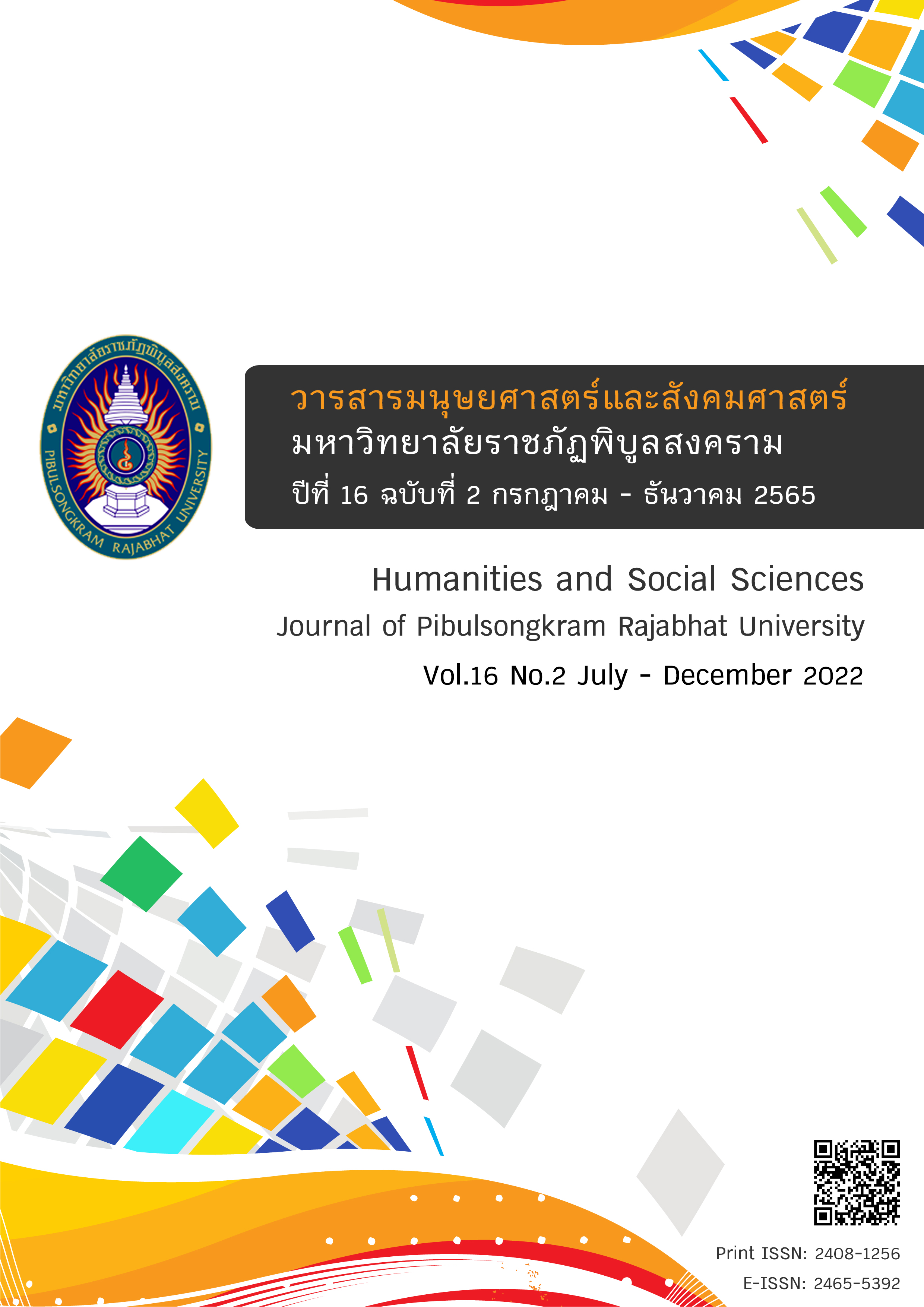Economic Dependency Analysis of Border Trade between Thailand – Cambodia (A Case Study of Srakeaw Province)
DOI:
https://doi.org/10.14456/psruhss.2022.49Keywords:
Economic dependency, Thailand – cambodia border trade, Dependency theoryAbstract
The Thailand–Cambodia Border Trade with its patterns and trends, including the normal trade at Aranyaprateth, Srakaew Province, is the best example of completeness in terms of size, level and volume of trade. Aranyaprateth has been allocated as the top 3 following successful border trades in addition to Sadao and Padang Bezar. In facts, Rong Klea Market is the most important market for Cambodian. To study the economic dependency between Thailand – Cambodia Border Trade, in this research we have used the Dependency Theory, World System Theory, and Globalization Theory, with regard to both Qualitative and Quantitative Research Methodology Approaches. The results of our research are as the following: 1) Quantitative Approach; Rong Klea Market’s trading business represents inbound and outbound number of Cambodian citizens. And the permission for Cambodian for inbound and outbound in private Cambodia cars and public Cambodian buses. By the relations in volume of border trade passing through Cambodia. Three types of questionnaires for shipping agent, the Cambodian businessmen and entrepreneurs and Cambodian citizens represent the situation in Thailand – Cambodia’s border trade that Cambodia depends on Thailand by the economic dependency. 2) Qualitative Approach: After conducting a couple of in –depth interviews, it was understood that Cambodia depends on Thailand continuously. From the development in roads’ networking and transport’s regulations and measurements for border trade including with customs checking point at Aranyaprateth in variety of dimensions represent that Cambodia depends on Thailand. From the research results analyzed beyond the historical background between Thailand – Cambodia, everything still stands on Economic Imperialism. It is the structural dependency that Cambodia depends on Thailand with the description by using Dependency Theory. And it shows the economic dominance by economic and political hegemonic power. These relations represent the situation in Hegemony –Rivalry by the description of World System Theory more than Cultural Assimilation. The conclusions of this research are economic dependency occurred from Thailand – Cambodia Border Trade.
References
กาญจนา แก้วเทพ. (2544). ศาสตร์แห่งสื่อและวัฒนธรรมศึกษา. กรุงเทพมหานคร: เอดิสันเพรสโปรดักส์.
จักรกริช สังขมณี. (2555). ชุมทางการค้า กับการสร้าง/สลายเส้นแบ่งพรมแดน: มานุษยวิทยาปริทัศน์. สังคมศาสตร์, 24 (1-2), 17-61.
จักรกริช สังขมณี. (2561). ชายแดนศึกษากับ เขต-ขันธ์วิทยาของพื้นที่ใน/ระหว่าง. กรุงเทพฯ: สยามปริทรรศน์.
ฉัตรทิพย์ นาถสุภา. (2543). ประวัติศาสตร์เศรษฐกิจไทย.กรุงเทพมหานคร : สำนักพิมพ์จุฬาลงกรณ์มหาวิทยาลัย.
ชลิศา รัตรสาร. (2549). การค้าไทย – ลาว ในบริบทของการครอบงำทางวัฒนธรรม. ดุษฎีนิพนธ์หลักสูตรสหวิทยาการ: มหาวิทยาลัยธรรมศาสตร์.
ภูษณ ปรีย์มาโนช. (2544). ฝ่าหนามกุหลาบโลกาภิวัตน์. กรุงเทพฯ: ภัคธรรศ.
วิทยา สุจริตธนารักษ์ และคณะ. (2537). การค้าชายแดน. กรุงเทพฯ: จุฬาลงกรณมหาวิทยาลัย.
สังศิต พิริยะรังสรรค์. (2538). โลกาภิวัตน์กับสังคมเศรษฐกิจไทย. กรุงเทพฯ: 179 การพิมพ์.
สุรชัย ศิริไกร. (2546). เอเชียตะวันออกเฉียงใต้ การเมืองการปกครองหลังสิ้นสุดสงครามเย็น. กรุงเทพฯ: จุฬาลงกรณ์มหาวิทยาลัย.
Andre Gunder Frank. (1969). Capitalism and Underdevelopment in Latin America. New York: Monthly Review.
Andre Gunder Frank. (1979). Dependent Accumulation and Underdevelopment.New York: Monthly Review.
Boris G. Andrew. N.M., and Nitin N. Are Leaders Portable. (2006). Harvard Business Review. 6.
Craig J.Raynolds. (1993). National Identity and its Defenders: Thailand, 1939 – 1989. Chiang Mai: Silkworm Books.
Davidson Wuthnow. (1984). Cultural Analysis. London: Routledge & Kegan Paul.
Denzin. (1978). Journal of Comparative Social Work 2009. 1.
Dos Santos. (1970). The Structure of Dependence. American Economic Review.
F.Cordoso and R.Faletto. (1979). “Dependency and Development. Berkeley and Los Angeles:University of California Press.
Immanuel Wallerstein. (1974). The Modern World System I. New York:New York Academic.
Immanuel Wallerstein. (1979). The Capitalist World – Economy. Cambridge:Cambridge University.
Immanuel Wallerstein. (1980). Processes of the World – System. USA: Sage Publication.
Immanuel Wallerstein. (1991). Culture as the ideological battleground of the modern world – system In Geopolitics – Geoculture. Cambridge: Cambridge University Press.
Roland Robertson. (2002). Globalization: Theoretical Perspective and Application. Bangkok: Thammasart University.
Downloads
Published
How to Cite
Issue
Section
License
Copyright (c) 2021 Humanities and Social Sciences Journal of Pibulsongkram Rajabhat University

This work is licensed under a Creative Commons Attribution-NonCommercial-NoDerivatives 4.0 International License.
Any articles or comments appearing in the Journal of Humanities and Social Sciences, Rajabhat Phibulsongkram University, are the intellectual property of the authors, and do not necessarily reflect the views of the editorial board. Published articles are copyrighted by the Journal of Humanities and Social Sciences, Rajabhat Phibulsongkram University.









